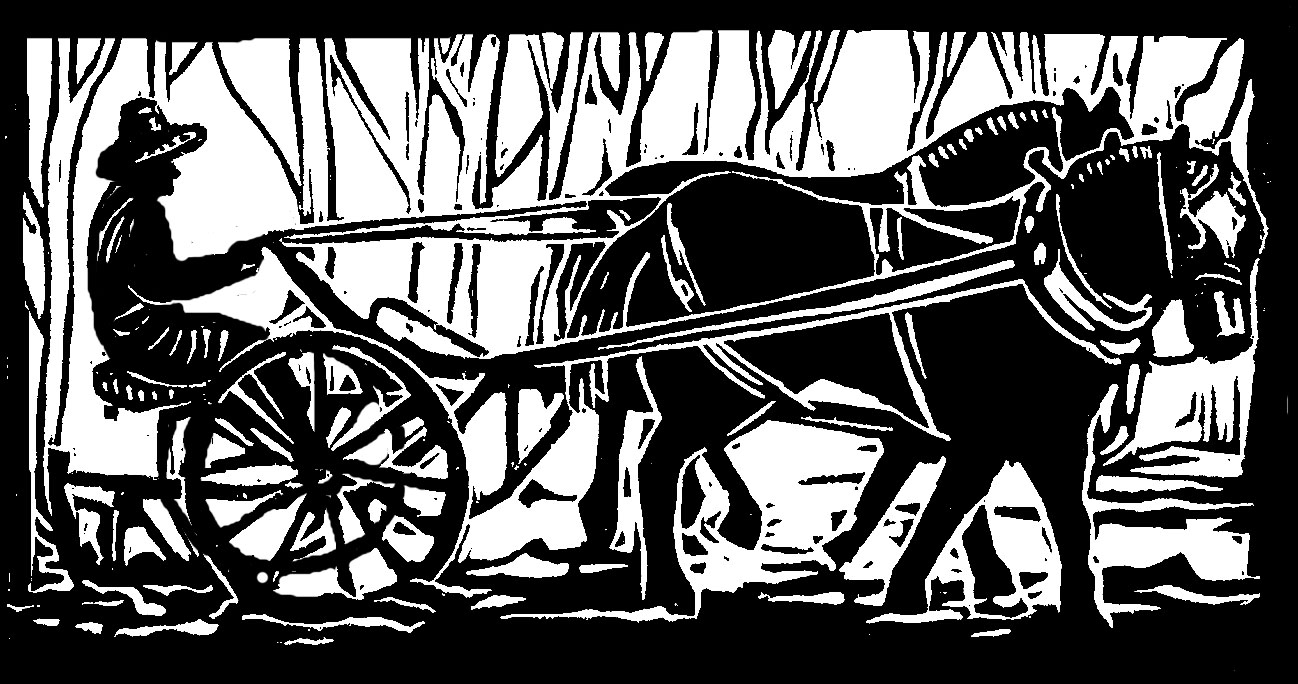It seemed like such a good idea: after years of numerous big new projects, we farmers decided to proclaim this the Marvelous Year of Maintenance. Perhaps we were proclaiming it a little too loudly, because far too many things on the farm have broken down or busted up this year.
Here is a partial list:
greenhouse plastic blows off in windstorm
greenhouse heat mat thermostat goes awry, killing many seedlings
broken bed chain on spreader
busted pole on spreader
busted pole on sickle bar mower
busted pole on hay wagon
busted pole on forecart (Granted, we did run over the forecart pole with our car, which is why it busted, but never mind that.)
broken hay wagon hitch
broken driving lines
Then there was the horse fencing. The horses love being out on grass, so we never expect any pasture break-outs early on in the season. However, they also hate the bugs, and on their very buggy second evening in the field, we heard some brisk trotting down the dirt road.
Luckily, we were working in the greenhouse along that very road. My fellow shot out of the greenhouse, catapulted himself onto the eight foot high garden fence, and shouted and waved as vigorously as possible without actually falling off the fence. The horses were so startled by this shouting, thrashing farmer on the fence that they halted and milled in the road. We were able to round them up in short order, and it was so close to dark that we led them back to their winter paddock for the night.
In the morning light we searched for the break in the fence. But there was no break in the fence. This was because there was no fence. We had cleared some brush the year before, and we had forgotten that there was no longer any fence along a short stretch of the road. Sigh.
We tried several semi-fixes over the next week, such as tying an unelectrified electric line across the gap, ending in a tree. We flagged the line with highly dangerous white cloth scraps, which did not scare the horses at all, and they got out again. Finally my farmer fellow gave in and decided to put in proper new wooden posts, including a sturdy new gate post, as the old one had given up.
“How's it going?” I asked, when we came in for lunch from our respective fencing and weeding projects.
“You're going to laugh at my gate post,” he said.
My fellow was right. I did laugh. For some reason he had chosen the spindliest, crookedest post in creation for the gate post, which needs to hold some weight, and which also sets the tone for a sturdy, convincing fence.
“Why did you pick this post exactly?” I asked.
My fellow scratched his head. “I don't know exactly. I thought it might be easy to get in, it was so little. But it was really hard to get in.” He went on, “But, hey, maybe it'll be easy to get out!”
It was easy to get out, as the rocky ground hadn't allowed for much of a hole. My fellow replaced the post with a slightly sturdier one, requiring a bigger hole, and taking far more time than he had allotted in the garden's busy season. Then he put in a second post, another lengthy, rocky task. Then he tried putting in a third post. Then he gave up.
“It's solid rock,” he announced, “all the rest of the way down the line.” In a desperate attempt to finish the fencing before an entire season of gardening had passed by, he squeaked some electric fence posts into the solid rock, and strung up an impressive two lines of the same unelectrified wire along the gap.
Now it was the horses' turn to laugh, at this next suggestion of a fence. They went gaily through it. All right, said my fellow, and put up a single line of barbed wire, chest high, so as not to endanger the horses' legs, but to make a stronger, pokier suggestion of a fence. Happily, this worked.
Much later on, the horses got out again, this time in a different field. Again, we were surprised, as they had just been switched to a lush new pasture. Again, we found a stretch of no fence, which we had forgotten to repair after pulling out firewood.
This does not reflect well, I know, on either our fence-fixing or our farmer memories. But what I'm really getting at here is that all these maintenance tasks in The Marvelous Year of Maintenance were entirely unscheduled. We have an enormous list of planned maintenance chores, and we have not yet accomplished one.
Still, the Marvelous Year of Maintenance is not quite over; we have a chance even yet to get some good stuff done. But the best part, I must say, is that in all this broken down and busted up year, we are very grateful that neither the horses nor the farmers have broken down or busted up. We're not doing so badly after all.
Originally published in the Monadnock Shopper News, Oct 24-Oct 31, 2018
